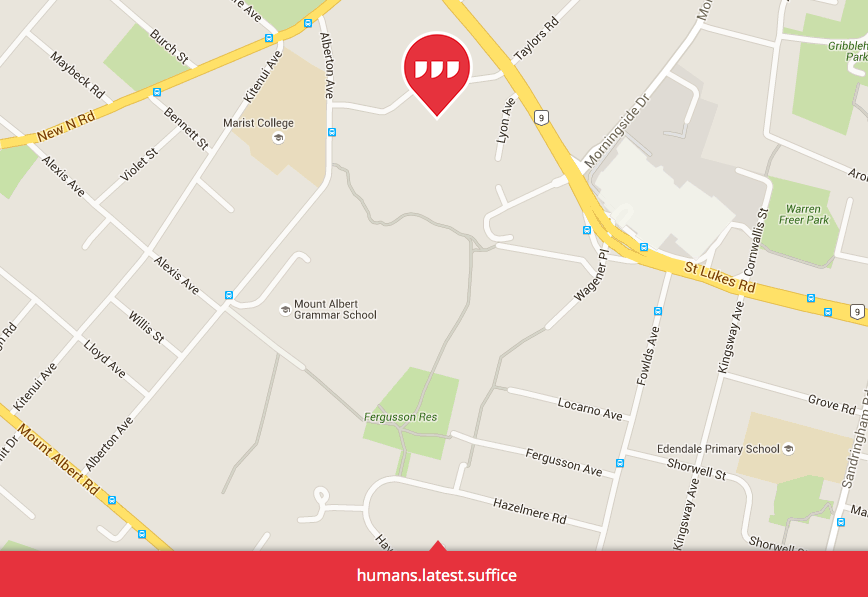
We all have that one friend who, no matter how lost they get, they never admit it and ask for help. Who’d rather travel in an arbitrary pattern of two rights followed by a left till they pass a familiar site. And if you don’t recall having that friend, you are that friend.
The truth is, directions can be confusing and coordinates too complex. Google Maps needs an internet connection and traditional printed maps are now as rare as an interesting accountant. (Like, Yeti rare.)
Confronting the problem, What3words have come up with a simple and brilliant solution to save you from wasting hours trying to convince your friend to stop and ask for directions: divide the entire planet into three-by-three metre sections and give each section a simple three-word coordinate (e.g. common.boring.accountant).
Right now, 75% of the world’s global population doesn’t have an address. To put it in a context suited to our Starbucks/Mocha Latte world, having no address means not having the ability to have products purchased online sent to your home, it means that navigation to new areas will be dependent on your friend’s horrible memory. The horrors, I know.

So why not just use the longitudinal and latitudinal coordination system since it has the capability to be more accurate that than a three-by-three metre square? Because the latitude and longitude system works with 18 digits per address it becomes very prone to human error. “If you flip two numbers and don’t realise you could go five miles in the wrong direction, or, even worse, you don’t realise until you’re there,” says What3words marketing director, Giles Rhys Jones.
And the problems posed by human error are bigger than one would expect. Currently, of the World Bank’s 80,000 tagged water points in Tanzania, 40% of them are incorrectly recorded. The value that What3words can provide for developing countries may be immeasurable as thousands of lives may be saved by providing precise and error-free navigation for NGOs and Governments that would allow them to find and fix broken water points with greater efficiency.
What3words’ app is free for individual users, but the company plans to monetise its system by charging companies to use the platform through either API and an SDK, two mediums that allow businesses to utilize the system to maximise route efficiency, all available offline, so you’re never really lost as long you have a smartphone.
Last year, What3words took home the top prize at the Cannes Lions Innovation Grand Prix festival and is currently planning to expand to 11 different languages.
Will it take off? Will you soon be telling your friends to meet you at pizza.penguin.pencil? We don’t know, but we here at humans.latest.suffice wish we’d thought of that.




